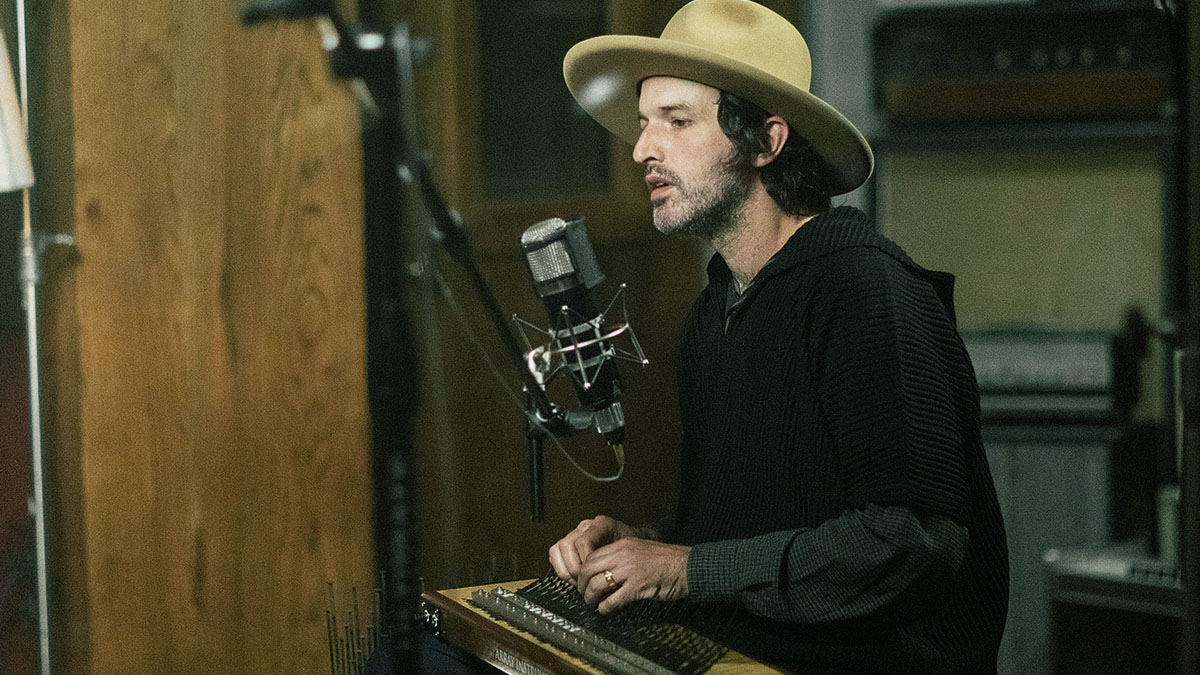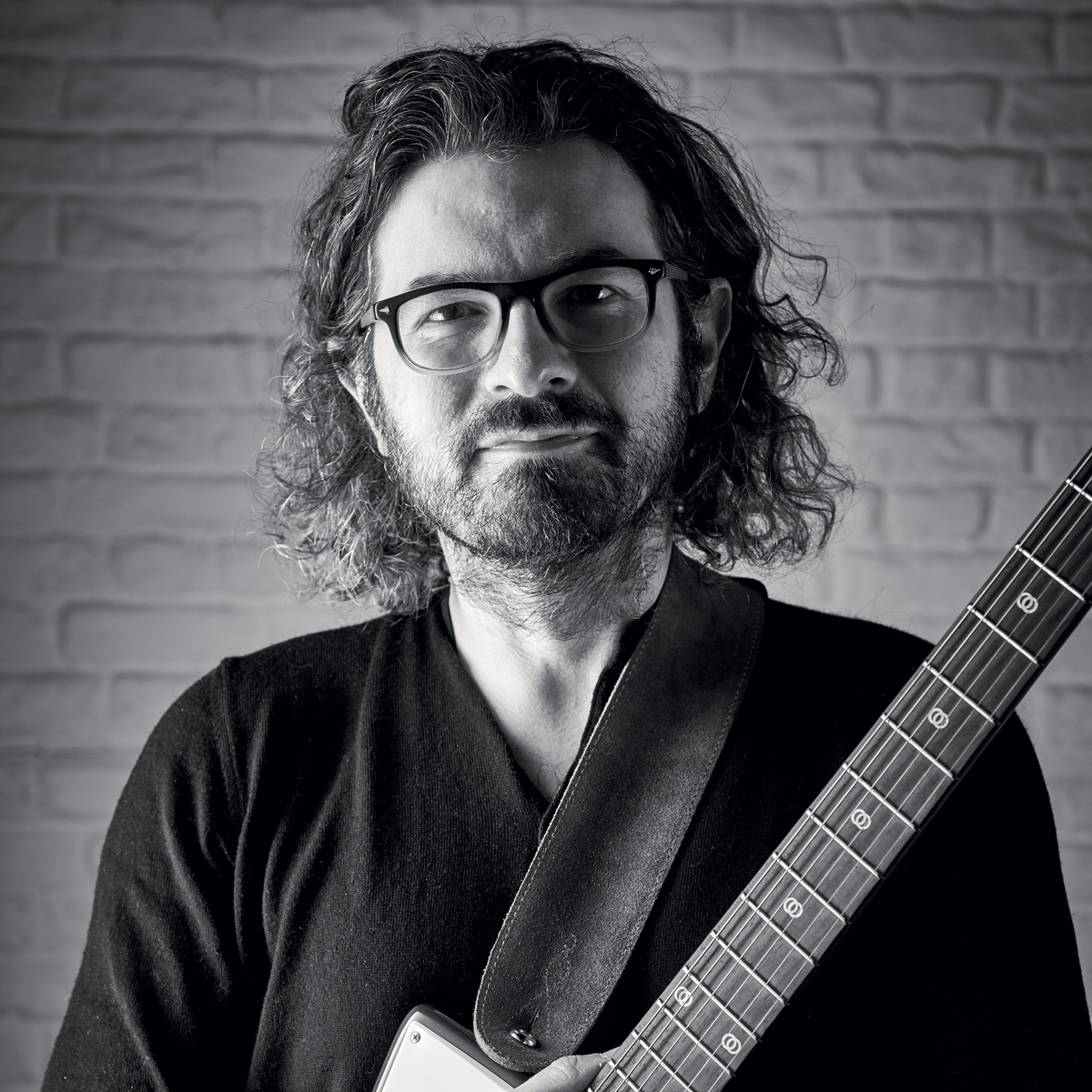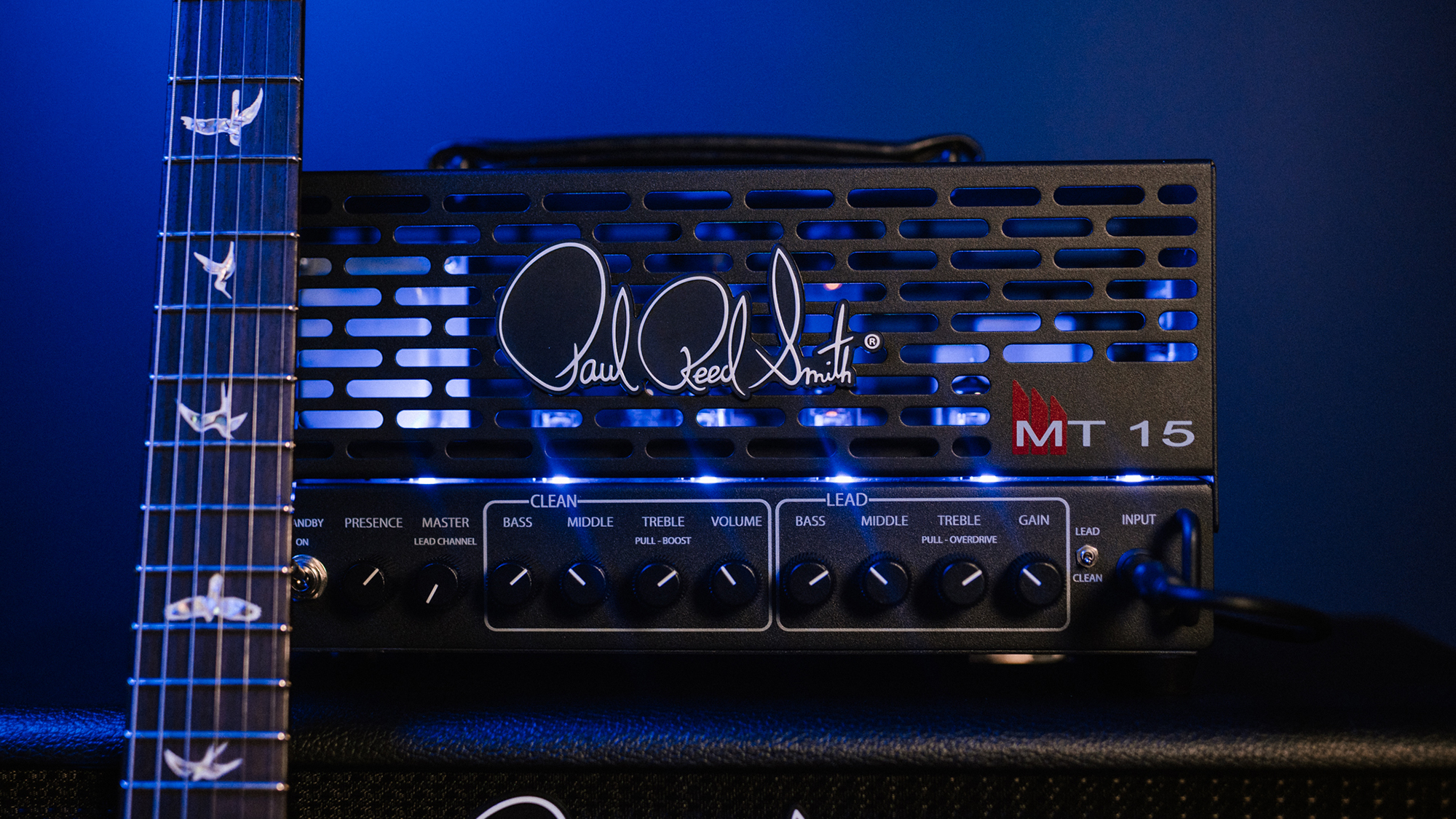Joachim Cooder on how his kids helped inspire his new album reimagining the folk-blues of Uncle Dave Macon
Joachim, son of slide-guitar legend Ry Cooder, enlisted the help of Vieux Farka Touré and others to accompany on a record that celebrates the greatness of the 1920s banjo king

The fog of time settles quickly upon the heroes of yesteryear. Uncle Dave Macon was a star of 1920s and 30s music, playing wild-spirited folk songs on banjo, which he had learned from the ordinary people of backwoods America, but today he’s a largely forgotten figure.
However, Joachim Cooder has resurrected Macon’s entrancing songs, enlisting the help of guitar luminaries such as Vieux Farka Touré, son of the great Ali Farka Touré, to accompany his own gently percussive playing on the mbira (thumb piano). The result is an immersive album that transcends time and cultural boundaries.
In the following conversation, Joachim tells us how he gathered up half-forgotten strands of America’s musical traditions to make this superb long-player – with a little help from his three-year-old daughter.
Who was Uncle Dave Macon – and how did you first encounter his music?
“When I first heard Uncle Dave Macon’s music, I didn’t know anything about him. My dad would play the banjo around the house all the time when I was little and I sort of got transfixed by this one song called Morning Blues – that was a song of Uncle Dave Macon’s that my dad would play.
“I have two kids of my own now, all these years later, and I was hearing my dad play the song again for them on the banjo and I said, ‘What is that? What’s that song you’re playing?’ And he said, ‘Morning Blues by Uncle Dave Macon, you used to love that one’ – or something like that.
“And I could see that my kids were just sitting there staring and listening to it, too. And so I thought, ‘Hey, there’s something to this song.’ So I started working it out on my mbira [thumb piano] and then I started to learn more about Uncle Dave’s life.”
Get The Pick Newsletter
All the latest guitar news, interviews, lessons, reviews, deals and more, direct to your inbox!
“He was born in the late 1800s in Tennessee and, basically, as well as being this incredible showman and banjo player, he was kind of a collector of music and went around finding songs that were popular at the time, which would have been minstrel music, medicine show, folk blues, black blues… music he heard coming through town or stuff he heard on back porches.
My dad would be in his house and kind of wander over and listen and peek his head in the door and say, 'Oh, I think I’ll play a little mandolin on that right there'
“And he repopularised all that music for a completely new generation in the 1920s and 1930s, becoming the first superstar of the Grand Ole Opry. And so he kept all this music from the late 1800s from falling into obscurity – music that the [then] younger generation had no idea about.
“In a way, he was an Alan Lomax kind of figure, but he was also a pretty wild character who would swing his banjo from side to side and make jokes as he performed. But I had no idea about any of that when I first heard his music – I just was responding to the songs themselves.
How did you get the idea to do a whole album of reinterpreted songs by him?
“Well, first off I started learning that song that I mentioned, Morning Blues. My dad was playing it sitting there and I didn’t have my mbira. And something about the way he was playing it just made me think…
“I could put in some different kinds of chords or imply a different feel because Uncle Dave was a sort of hard-charging banjo player and everything kind of went that way. But I do everything on my mbira, which sort of puts you in a bit of a meditative state, almost like a lullaby.
“It just leads you that way. And so I started learning the one song and I started playing it live in my show, and after a couple of shows, there would be like a line of people coming up to me and I thought, ‘Oh, yeah, maybe they want an autograph?’ But all they wanted to talk about was this Morning Blues song, like, ‘What’s that song? Is that your song? Did you write that? What is that?’ And I was like, ‘Oh, okay, that must really work.’”
“And so then there’s a record label out of Germany called Bear Family Records, who make these definitive, gigantic 12-disc boxsets. And I got the Uncle Dave one and began playing it around the house. And my daughter, who was probably three years old at the time, became obsessed with listening to Uncle Dave Macon all morning, all day, all night. It was like this kind of crazy thing…
“Pretty soon I had worked up 10 songs or however many are on the record, and I thought, ‘I should just start recording these.’ But I wasn’t thinking, ‘I’m going to put these out.’ It was very much a fun project that I was doing with my daughter; she was sort of my little curator of Uncle Dave songs.”
There are some really beautiful guitar, mandolin and banjo parts on the album – who’s playing?
“Well, my dad plays banjo on it. At the time, we were living next door to my parents and my daughter was going to this school five minutes away. So we had everybody come to this little studio that my parents have in their yard. And that way, I could drop my daughter off, come back down and start recording.
“My dad would be in his house and kind of wander over and listen and peek his head in the door and say, ‘Oh, I think I’ll play a little mandolin on that right there.’ And then he’d play something. Then my wife would come over and she sings all the harmony. So we had a little communal thing going…
“And then we got Vieux Farka Touré, who is Ali Farka Touré’s son, when he came through town. So we had him come in a little bit earlier and recorded him playing over some tracks I had made. Then I took the guitar he played over these other tracks and just put them right on top of this Uncle Dave one I was working on, and it was as if we were in the room together, but it was from two different times.”
What’s your best recording tip?
“I find that when I go into studios with an engineer I don’t know, often what happens is you start off by trying to get sounds [you’re happy with]. But that’s when somebody usually does the greatest thing of the day – without thinking about it. And then they’re like, ‘Oh, wait, it’s time to do the take,’ and by that point, you’ve kind of already done the unexpected thing because you weren’t thinking about it, and then you just kind of go into the mode of playing by rote. But, then, the magical thing already happened…
“So I always say just roll tape or press record on the computer the moment people start coming into the studio, even if mic placement isn’t perfect at first. I think that’s the smartest thing.”
- Over That Road I'm Bound is out via Nonesuch.
Jamie Dickson is Editor-in-Chief of Guitarist magazine, Britain's best-selling and longest-running monthly for guitar players. He started his career at the Daily Telegraph in London, where his first assignment was interviewing blue-eyed soul legend Robert Palmer, going on to become a full-time author on music, writing for benchmark references such as 1001 Albums You Must Hear Before You Die and Dorling Kindersley's How To Play Guitar Step By Step. He joined Guitarist in 2011 and since then it has been his privilege to interview everyone from B.B. King to St. Vincent for Guitarist's readers, while sharing insights into scores of historic guitars, from Rory Gallagher's '61 Strat to the first Martin D-28 ever made.
“The Beyoncé effect is, in fact, real. I got a lot of traffic just from people checking the liner notes”: With three Grammy wins and plaudits from John Mayer, Justus West is one of modern session guitar’s MVPs – but it hasn’t been an easy ride
“You might laugh a little. The post office shipped your guitar to Jim Root”: This metal fan ordered a new guitar from Sweetwater – but it ended up with the Slipknot guitarist




![John Mayer and Bob Weir [left] of Dead & Company photographed against a grey background. Mayer wears a blue overshirt and has his signature Silver Sky on his shoulder. Weir wears grey and a bolo tie.](https://cdn.mos.cms.futurecdn.net/C6niSAybzVCHoYcpJ8ZZgE.jpg)

![A black-and-white action shot of Sergeant Thunderhoof perform live: [from left] Mark Sayer, Dan Flitcroft, Jim Camp and Josh Gallop](https://cdn.mos.cms.futurecdn.net/am3UhJbsxAE239XRRZ8zC8.jpg)




